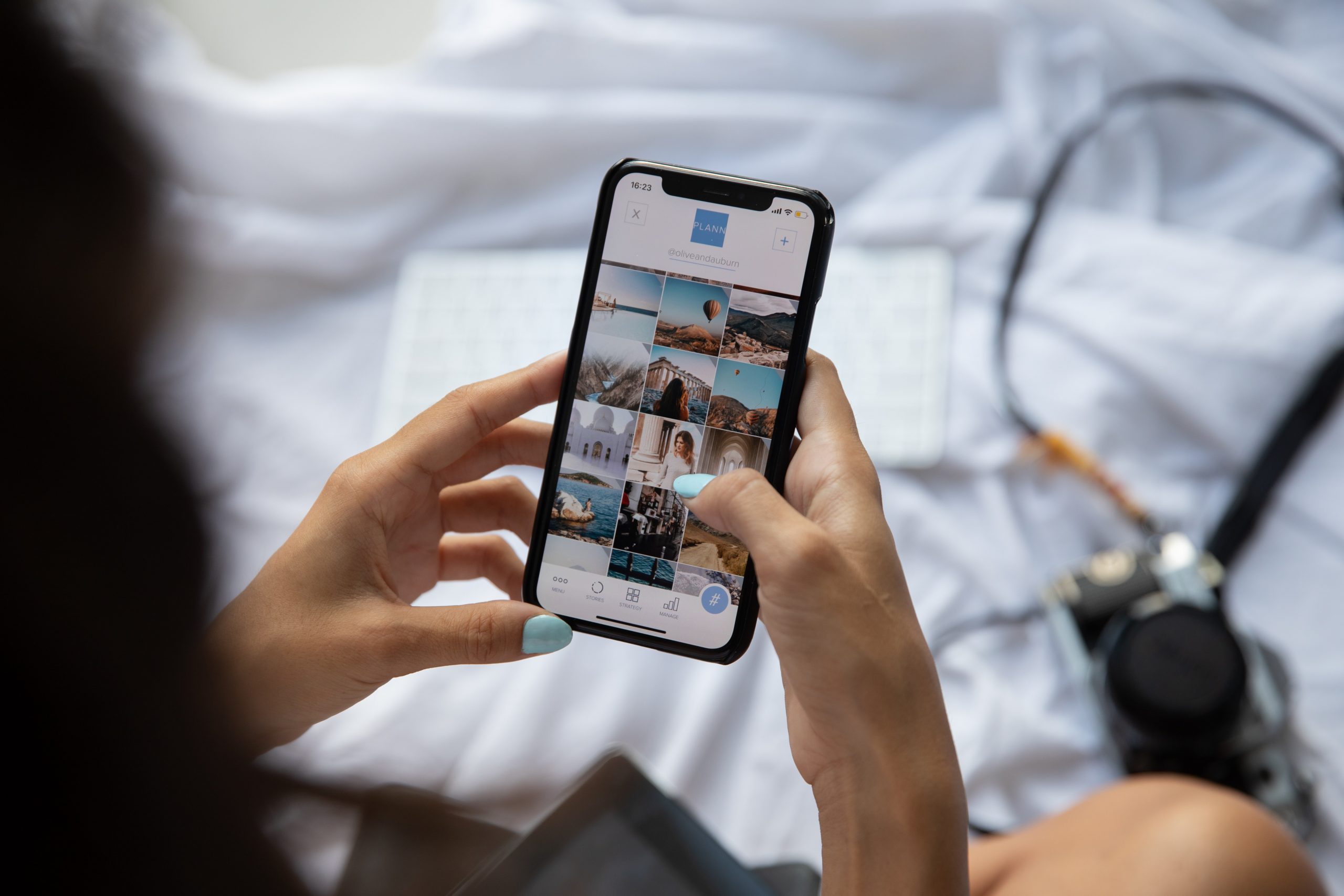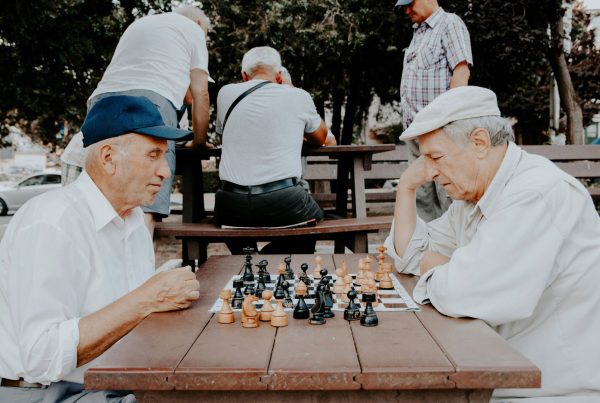Zooming, Facetiming, Marco Polo, TikTok, Doomscrolling, endless streaming of old and new TV shows – the pandemic left us at home and with our devices – to connect as best as possible with friends and family, and sometimes dream of a different life through TV, movies and social images.
Flash forward to data of surveyed individuals during the covid-19 pandemic:
- 61% of adults in U.S. experienced undesired weight changes
- 1 in 5 people diagnosed with covid were diagnosed with a mental health condition within 3 months
- 40.9% increase in anxiety and depression
Individuals’ cores have been challenged. So, what have we learned about ourselves, our family, our society and workplaces which will likely alter our future way of life?
- It’s been proven that work can effectively be done remotely, leading companies to have future workplaces and flexibility that reflect the needs of every worker.
- That family and friends matter more than we realized; when we were all in isolation, connecting to others when and if we could was critical to our well-being and will likely be more cherished in the future, even when living distances apart.
- In many cases because of the political, society and economic environment, we’ve also become less trusting of others beyond our immediate circle. Creating new challenges for the future.
- Individuals living in geographic areas where there simply weren’t mental health providers, can now have access through telehealth video appointments to providers in other cities without having to travel. For some patients, taking a day off of work for a medical appointment is impossible. But with telehealth, often a patient can fit in an appointment during a lunch break, and is therefore getting care when they otherwise wouldn’t.
- Telehealth is often more affordable because telehealth companies are not paying for the overhead of office space and extensive support staff, and that savings can be passed along to patients.
As we transition from what we’ve known, felt and experienced the past year to a new ‘outside the home’ life where restrictions lift; we had the chance to sit down with our Remedy founder and psychiatrist, Dr. Kirsten Thompson and Choosing Therapy psychologist, Dr. Melissa Boudin on common patient themes during the covid-19 pandemic and some transition tips to maintain strong mental health.

Dr. Kirsten Thompson, Remedy founder & psychiatrist
Dr. Kirsten Thompson is Founder, CEO and supervising psychiatrist of Remedy with over a decade experience in psychiatry. She is a board certified psychiatrist with her B.S. in engineering from Cornell University, a postbaccalaureate premedical certificate from Columbia University, medical school at State University of New York Downstate College of Medicine, two years of surgical residency training at USC and psychiatric training at UCLA.
What are some of the common themes psychiatrists have seen from their patients during covid?
“There has been a massive increase in anxiety and depression. Not only that, but a fatigue factor in which many people have held it all together for over a year now, and are starting to struggle. Drinking alcohol has definitely escalated when other healthier coping skills such as going to the gym have been eliminated. For those still struggling with added anxiety, depression or substance use, seeking help is a good next step and medication can sometimes be the temporary springboard to motivate back into healthier lifestyle behaviors. Luckily, as we reopen, many are already feeling better as they are again able to reconnect to friends and family, resume healthier coping mechanisms and simply leave the house.”
What are some tips for those that struggle with their mental health in this transition of a lifetime from pandemic to ‘outside’ life?
“Take note of what you’ve missed during pandemic life (seeing a friend regularly? The gym? Walking to your favorite restaurant once a week?), and add those back in, but also take note of any desirable behaviors that you might have gained during the pandemic and want to hold on to. For some people, this may be returning to less mindless socializing and more pointed connections, or enjoying a daily walk (that might have originated when the gyms were closed), or getting more sleep (facilitated by not having a commute). Finally, reflect on what you wanted and didn’t have- a best friend? A relationship? A career that you enjoyed? Use the learnings of your pandemic life to rebuild a more ideal life for yourself, and take the struggle of the pandemic as an opportunity for personal wisdom. As you transition, keep a schedule and carve out the time for the behaviors you want to keep. When ready to travel, travel with care. For travelers with anxiety and panic disorders, vacations were not easy, even before covid-19. Travel anxiety has since become a catchall for symptoms and fears that, left unchecked, might spoil an otherwise relaxing trip.”

Melissa Boudin, PsyD, Clinical Director, Choosing Therapy
Dr. Melissa Boudin is a Clinical Psychologist with over a decade of experience, currently serving as the Clinical Director for Choosing Therapy, an online therapy platform that is making psychotherapy more inclusive and accessible. Previously, Dr. Melissa Boudin has been in private practice as well as in community mental health and preventative care.
What are some of the common themes therapists are seeing from their patients during covid?
“Common themes therapists are seeing from clients during the pandemic are often based around relationship stressors, including stressors in romantic relationships, friendships, and familial relationships. Relationships are being stressed by several factors, including decreased opportunity for connection over the last year, changes to the ways relationships are celebrated, cared for, and attended to, as well as differences in viewpoints regarding the pandemic, its related restrictions, and now vaccinations. Relationships are also strained by changes in roles at work and at home, and changes in childcare responsibilities.
Therapists have also seen increased anxiety due to the pandemic and the “unknown” surrounding its course, the restrictions, and what life will look like day to day. Anxiety around changes at work and in day-to-day roles has also become more prominent. There is also depression around loss of jobs, loss of loved ones, and relationship stressors. Further complicating these increased triggers for anxiety and depression is the decreased ability to utilize typical coping skills, such as social outings, group gatherings, clubs, and workouts, as well as the closure of many public spaces. This has made it difficult to cope without being intentional about creating new healthy coping strategies.”
What are some tips, tools or resources for those that have suffered from mental health struggles to transition from pandemic life to ‘outside’ life’?
“Tips for transitioning from pandemic life to “outside” life include remembering what brought you joy and happiness pre-pandemic. Re-engage in those things in whatever capacity you are now able to. Even if you may not feel like doing those things, when you do them, you will be reminded of the joy and happiness that they once brought you.
Also remember the new ways that you have learned to cope and engage with the world positively over the last year. Be sure to continue to utilize those skills and maintain them as you adjust. Virtual connection can still open our world up to interactions with loved ones we would not otherwise have. New hobbies or interests that you have participated in during the pandemic should still be given time and attention, and if you gained from spending time with your family or loved ones in new ways over the past year, continue to nurture that. There are many virtual resources that became available to us this past year (increased availability of online therapy, online support groups, online interest clubs, etc) that many can still gain from and should utilize even as the world more fully “reopens”.”
Below are some key signs that demonstrate one needs mental health support:
- You feel sadness, empty, or numb more often than not
- You worry excessively or feel anxious most or all the time
- If you are unable to meet your basic needs for survival
And many organizations have mental health screening tests such as this one from MHA. If any of these signs are felt or you just are not sure, know you are not alone and there is accessible care. There are different types of mental health support services and ways to decide what is right for you.
Local Hospital or 911: when one has thoughts of harming themselves or others, immediately dial 911 or go to your local hospital emergency department. They will address the needs accordingly with a mental health professional.
Talk Therapy (via teletherapy): psychotherapy, or also known as talk therapy, provides individual or group support and guidance over video using various methods of discussion and exploration to improve one’s mental health symptoms. Visit an online therapy directory to find a therapist who meets your individual needs.
Medication treatment (via telepsychiatry): A mental health evaluation to diagnose and ongoing medication management care is provided by a psychiatric expert, over video appointments. Medication can be used in combination with talk therapy or medication can be a critical first step in providing a springboard to implementing the necessary behavioral changes to improve one’s mental health. Visit Remedy to book an appointment with a provider of your choice.
All of the above info is no substitution of care that is unique to each individual.
Read one of our recent blog articles, for some tips on questions to ask yourself on How to find the right telehealth service for mental health medication needs.







